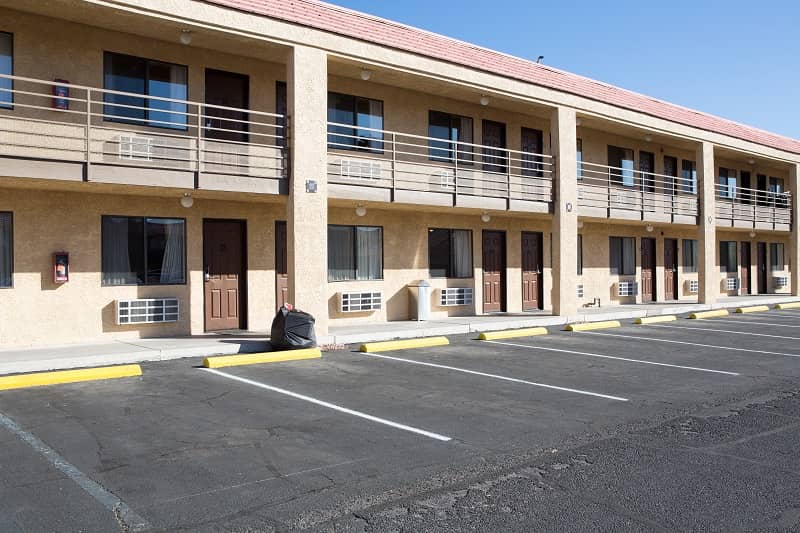Testimony before the Multnomah County Tax Supervising and Conservation Commission
Regarding the TriMet Proposed FY 13 Budget
John A. Charles, Jr.
President & CEO
May 23, 2012
The TSCC is charged with reviewing local government budgets and certifying that they comply with state law. I encourage you to withhold your approval of the TriMet FY 13 budget, on the grounds that it is not balanced.
TriMet pretends to show a balanced budget by using at least two gimmicks: (1) assuming that $5 million in potential employee compensation costs will disappear via labor arbitration with the ATU; and (2) deliberately under-funding pension and OPEB trust funds to solve immediate cash problems.
If the TSCC were to use a more realistic assumption for the ATU/TriMet arbitration, and if you required TriMet to begin funding retirement trust funds at prudent levels, the TriMet budget would be severely out of balance. That should be addressed now, not next year.
Problem #1: Assuming that management will win the arbitration with ATU
By making this assumption, TriMet closes a $5 million gap in the budget. But why is this a realistic assumption? TriMet has been making the same prediction for over a year, and has yet to be right, as seen in the following statements:
- TriMet press release, April 13, 2011: “The FY2012 budget assumes that a new Working and Wage Agreement with the ATU has benefits more in line with peer agencies, and consistent with those contained in TriMet’s July 2010 Final Offer.”
- TriMet FY 2012 budget message, July 2011: “A critically important assumption upon which TriMet’s financial forecast and the FY 12 Adopted Budget are based is that TriMet enters into a Working and Wage Agreement WWA) with the Amalgamated Transit Union, and that the wages and benefits are consistent with those contained in TriMet’s July 2010 Final Offer….”
- TriMet FY 13 budget message, April 2012: “…the FY 13 proposed budget includes a $12 million revenue increase/expenditure reduction package, based on the assumption of a labor arbitration decision favorable to TriMet.”
Unless TriMet can provide you with some analytical justification for its continued assumption that management will win the ATU arbitration, TSCC should reject this forecast as wishful thinking and require that TriMet plan a budget on the assumption that ATU wins. That would require $5 million in new revenue and/or expense cuts.
Problem #2: Disguising revenue-expenditure imbalances by underfunding retirement trust funds.
TriMet has been hiding budget problems for decades by deliberating underfunding the trust accounts established to pay for post-employment obligations. This is not apparent to anyone who simply reads the budget; it can only be discerned by looking at the budget and the audited financial statement together.
For your convenience, page 48 of the 2011 TriMet Annual Report is attached. It shows that the trust funds for OPEB and the two pension plans are severely underfunded. Not only that, when expressed in terms of “UAAL as a percentage of covered payroll”, the trends since 2004 are all going in the wrong direction.
Lest you think that this is some kind of 8-year statistical fluke, the chart below shows that management has been underfunding the largest employee pension fund for nearly 30 years.
Trends in pension obligations for TriMet
1983-2011
(millions)
Bargaining Unit Plan 1983 1987 1991 1995 2001 2005 2009 2011
AAL $17.5 $23.6 $33.1 $113.1 $194.9 $345.4 $460.3 $517.9
Unfunded AAL $7.1 $17.7 $22.7 $61.1 $94.6 $189.6 $243.2 $228.6
UAAL as a % of Cov. PR 17% 46% 52% 92% 107% 178% 196.5% 192%
TriMet managers know this is not prudent. They have repeatedly stated that changes must be made. For example, in the budget message for the FY 2011 budget, management stated: “Over time, TriMet will need to increase annual pension fund contributions in order to achieve 75% or higher funding of the defined benefit pension plans.”
The message also noted, “TriMet needs to begin to take steps to partially fund a retiree-medical trust to assure a funding source for retiree health benefits, which have already been accrued but are not yet funded.”
That language was repeated almost word for word in the FY 2012 budget message last May.
The message for the FY 13 budget states, “TriMet must continue to improve its financial position by addressing the following areas: reduce retiree medical costs and fund existing liabilities with deposits to an OPEB trust; increase the funded ratio for existing pension plans.”
For three years in a row, TriMet has promised to address this problem, yet as of June 2011, the funded ratios for the OPEB trust, the management DB pension plan, and the union DB pension plan were 0%, 68%, and 56%, respectively.
The relative scale of TriMet’s OPEB liability can be seen in the attached spreadsheets, which are excerpted from a larger analysis we undertook last year. The first spreadsheet (blue) is rank-ordered by Actuarial Accrued Liability; the second by UAAL as a % of covered payroll. By either metric, TriMet has the biggest OPEB problem of any unit of government in Oregon.
According to the auditor, the annual OPEB cost last year was $86.2 million, and TriMet only paid for $15.9 million, or 18% of the total cost. If TriMet tried to make the Annual Required Contribution of $77.6 million calculated by the actuary, it would almost wipe out TriMet’s transit service.
At the January meeting of the TriMet board, the TriMet CFO reported that OPEB unfunded liability had increased by roughly $60 million since June 30, which implies that the unfunded liability is (or was) growing at a rate of $2.3 million per week. In essence, TriMet cannot afford to pay its workers, and is using the OPEB trust fund as an ATM.
If an employer paid its employees under the table to avoid payroll taxes, everyone would know that the business was not really viable. Yet TriMet is essentially doing the same thing by moving the growing levels of UAAL for OPEB and pensions off the balance sheet. While this may be legal in the public sector, it is not a sound budgeting practice, and guarantees an even worse budget crisis in the future.
Conclusion
Municipalities and special districts across the country are facing massive budget problems caused by unsustainable retirement obligations for public employees. Yet in every case, something could have been done about it in prior decades, if only policy-makers had had the courage to act.
The same thing is happening at this very moment with TriMet. Year after year, the agency defers more unfunded liability to future years, because the TriMet board is unwilling to make the tough decisions. Members of the TSCC have an opportunity to help put a stop to that practice.
I hope you will reject the proposed budget on the grounds that it hides the true long-term effects of current and past decisions, and require that TriMet resubmit a budget that more accurately states the costs of fringe benefits.











